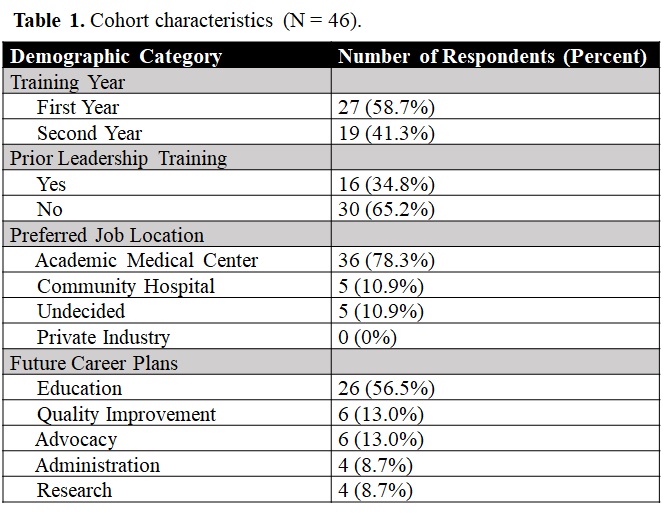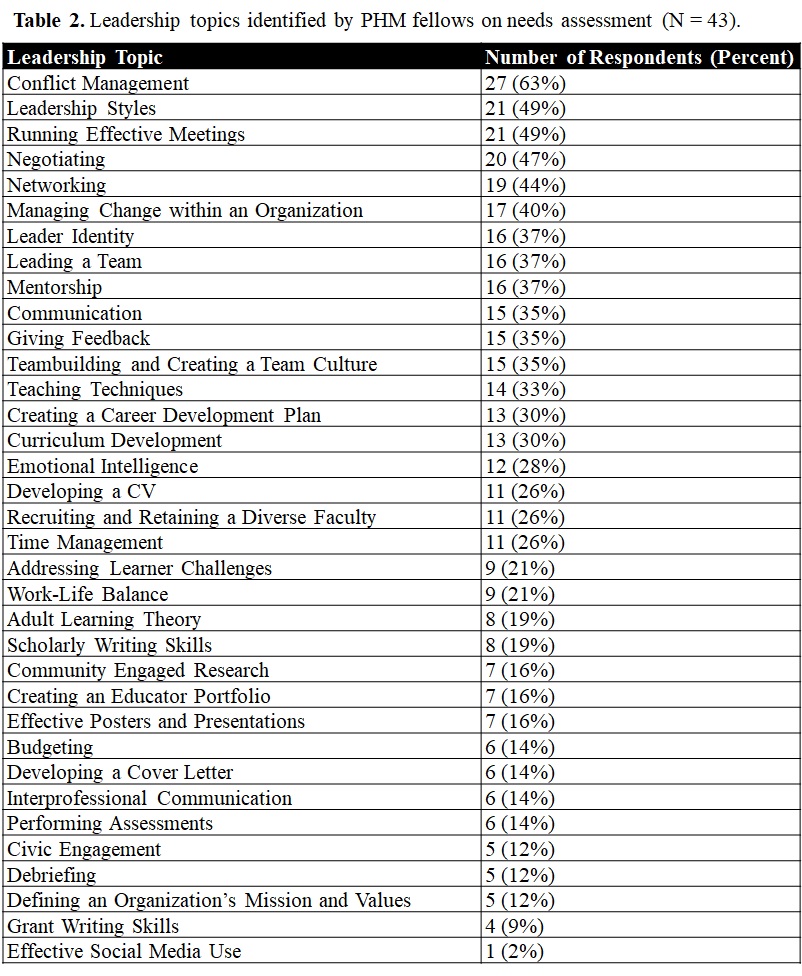Hospital Medicine
Session: Hospital Medicine 3
339 - Leaders in the Making: A National Pediatric Hospital Medicine Fellow Needs Assessment of Leadership Skills Training
Friday, May 3, 2024
5:15 PM - 7:15 PM ET
Poster Number: 339
Publication Number: 339.107
Publication Number: 339.107

Lauren S. Starnes, MD, MEd (she/her/hers)
Clinical Fellow
Monroe Carell Jr. Children's Hospital at Vanderbilt
Nashville, Tennessee, United States
Presenting Author(s)
Background: Pediatric hospitalists are increasingly taking on leadership roles but lack formal leadership training. A pediatric hospital medicine (PHM) fellow leadership training curriculum could develop a cohort of effective future leaders.
Objective: To identify PHM fellow learning needs regarding leadership skills development, we conducted a needs assessment to inform future curricula.
Design/Methods: We asked PHM fellowship program directors nationally to distribute a voluntary REDCap survey to current fellows. The survey included multiple choice, multiple answer, and 4-point scale (1= strongly agree, 4= strongly disagree) questions on fellow career goals and interest in leadership skills development. Respondents were asked their preferred learning modalities and leadership topics. Leadership topics were generated through a literature review and the PHM Core Competencies and included: leadership theory; general leadership skills; finding a leadership position; and team, institutional, community, educational, and research leadership. Descriptive statistics, Fisher’s exact test, and Pearson’s Chi-squared test were used for analysis.
Results: 46 (26%) of 177 eligible fellows participated. 58.7% of respondents were first-year fellows. Only 34.8% of all fellows reported having prior leadership training. The majority of respondents plan to pursue a career in medical education (56.5%) (Table 1). 43 (93.5%) agreed or strongly agreed that leadership would be important in their career and that they had an interest in leadership training. Previous exposure to leadership training did not affect interest in a fellow leadership training program (p=0.15). Likewise, future career plans, such as education or administration, did not influence their desire for a leadership training program (p=0.14). Fellows preferred training with small group discussions (81.4%) and lectures (72.1%) and felt either in-person (69.8%) or virtual (60.5%) sessions were acceptable. General leadership skills were of the most interest, including conflict management (63%), leadership styles (49%), and running effective meetings (49%) (Table 2). Training year did not correlate with topics selected besides teaching techniques, which was more commonly chosen by first-years (44% vs. 11%; p=0.014).
Conclusion(s): By performing a PHM fellow educational needs assessment, we identified needs in leadership skills training to inform curricula. Our survey is limited by our response rate, which may be secondary to our means of survey distribution or reflect interest in this topic. Future steps entail developing a national leadership curriculum for PHM fellows.


